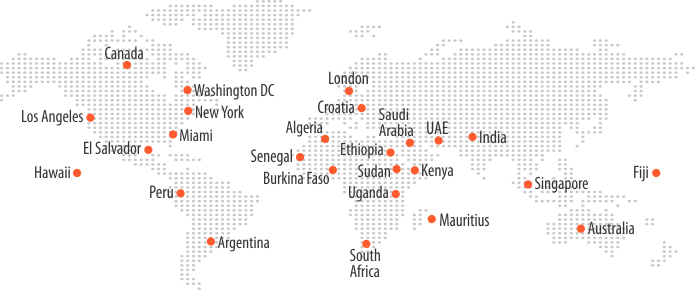How AI is Revolutionizing Telecommunications Security: Trends and Innovations

While digital communication has superseded as the focal pinnacle of global connectivity, the telecommunications industry has proved increasingly vulnerable to security breaches and fraudulent activities. Wholesale Voice Carriers – having been the ones that transmit voice calls across the networks – are also highly prone to various types of threats including call spoofing, toll fraud, and identity theft. The worldwide telecom industry has been hit by an alarming number of fraudulent activities. The penalty is heavy leading to a worldwide loss of about 32.7 billion dollars annually.
However, such an astounding astronomical revolution as a full-blown AI and to that activity the entire network industry human action must now be revealed by the freshness of the type of fresh telecommunications security reality. The following blog post focuses on AI trends and innovations in the telecommunications security revolution related to Wholesale Voice Carriers wholesale voice termination and VoIP carriers.
Why AI is Essential as a Protective Shield Against Cyber Threats?
AI is essential in protecting against call spoofing, toll fraud, and identity theft in telecommunications for several key reasons:
AI-Powered Anomaly Detection
AI is invaluable in detecting anomalies that may indicate fraudulent behavior. Call spoofing, where the caller falsifies their identity to appear as a trusted source, can be identified through AI algorithms that analyze calling patterns, voice characteristics, and historical data.
Similarly, toll fraud, which involves unauthorized access to telecommunication services to make expensive calls at the expense of others, can be detected through AI-driven anomaly detection systems that flag unusual call patterns and destinations. Additionally, AI can assist in identifying discrepancies in user behavior that may signify identity theft, enabling Wholesale Voice Carriers to take prompt action to safeguard their networks and customers.
Behavioral Analysis for Fraud Prevention
Behavioral analytics play a crucial role in fraud prevention for Wholesale Voice Carriers and Wholesale VoIP Carriers. By establishing baseline behavioral patterns of users and devices, AI systems can detect deviations indicative of fraudulent activities. For instance, sudden changes in calling patterns, such as a significant increase in call volume or calls to unusual destinations, can raise red flags that prompt further investigation. By leveraging behavioral analysis, Wholesale Voice Carriers can proactively identify and mitigate potential threats, thereby minimizing the risk of toll fraud and identity theft.
Enhanced Authentication with AI
Authentication mechanisms, such as voice biometrics, offer enhanced security measures against identity theft in telecommunications. Voice biometrics analyze unique vocal characteristics to verify the identity of callers, providing a robust authentication method that is difficult to spoof.
By integrating voice biometrics into authentication processes, Wholesale Voice Carriers can ensure that only authorized users gain access to their networks, mitigating the risk of unauthorized access and identity theft.
AI Trends Enhancing Telecommunications Security for Wholesale Voice Carriers
Incorporating AI trends into their security strategies, Wholesale Voice Carriers, wholesale voice termination, and Wholesale VoIP Carriers can strengthen their defenses against emerging threats and ensure the integrity and reliability of telecommunications networks.
Adaptive Security Measures
AI enables Wholesale Voice Carriers to implement adaptive security measures that dynamically adjust to evolving threats and attack vectors. By continuously monitoring network traffic and identifying emerging security threats, AI-powered systems can automatically adapt security protocols and policies to mitigate risks and enhance overall cybersecurity posture.
Threat Intelligence and Information Sharing
AI facilitates the analysis of vast amounts of threat intelligence data from various sources, enabling Wholesale Voice Carriers to gain insights into emerging threats and vulnerabilities. By sharing threat intelligence with industry peers and stakeholders, carriers can collaborate to identify and address common security challenges, thereby strengthening the overall resilience of the telecommunications ecosystem.
Automated Incident Response
AI-powered automation streamlines incident response processes for Wholesale Voice Carriers, enabling rapid detection, analysis, and mitigation of security incidents. By automating routine tasks and leveraging machine learning algorithms to identify and prioritize security alerts, carriers can significantly reduce response times and render personalization in solutions to give them a competitive edge. Moreover, minimize the impact of security breaches on their networks and customers.
Network Traffic Analysis
AI-driven network traffic analysis enables Wholesale Voice Carriers to gain visibility into network activity and identify anomalous behavior indicative of security threats. By analyzing patterns in call traffic, data transfers, and communication protocols, AI systems can detect and respond to suspicious activities in real-time, thereby enhancing overall network security and resilience.
Real-time Analysis
AI-powered systems analyze large numbers of data in real-time, allowing for the immediate detection of suspicious activities such as call spoofing, where the caller deliberately falsifies information to appear as a different number. By continuously monitoring call patterns and behaviors, AI algorithms can quickly identify anomalies indicative of spoofed calls.
Pattern Recognition
AI excels at recognizing patterns and anomalies within data. In the context of toll fraud, where fraudsters exploit vulnerabilities in telecommunications networks to make unauthorized calls and avoid paying fees, AI algorithms can identify unusual calling patterns or sudden spikes in call volume that may signify fraudulent activities. This enables telecom providers to take prompt action to prevent further unauthorized usage and mitigate financial losses.
Behavioral Analytics
AI-driven behavioral analytics can establish baseline patterns of legitimate user behavior and device interactions. Any deviations from these established norms can raise red flags for potential identity theft or fraudulent activities.
For instance, if a user’s account suddenly exhibits unusual calling patterns or accesses the network from unfamiliar locations, AI systems can flag these behaviors for further investigation, helping to thwart identity theft attempts and ensuring confidential conversations with ease.
Predictive Analytics
AI-driven predictive analytics can anticipate and forecast potential security threats based on historical data and trends. By identifying patterns associated with past incidents of call spoofing, toll fraud, or identity theft, predictive analytics algorithms can provide telecom providers with insights to proactively strengthen their defenses and implement preventive measures before fraud occurs.
Conclusion
The integration of AI is indispensable for safeguarding against call spoofing, toll fraud, and identity theft in telecommunications, with particular significance for Wholesale Voice Carriers, wholesale voice termination, and Wholesale VoIP Carriers.
AI-driven anomaly detection, behavioral analysis, and enhanced authentication mechanisms offer robust safeguards against malicious activities, empowering Wholesale Voice Carriers to uphold network security and shield customers from fraud.
Team Bankai explores tailored security solutions that align with your business objectives and ensure the resilience of your telecommunications infrastructure. Together, let’s secure the future of voice communication.






